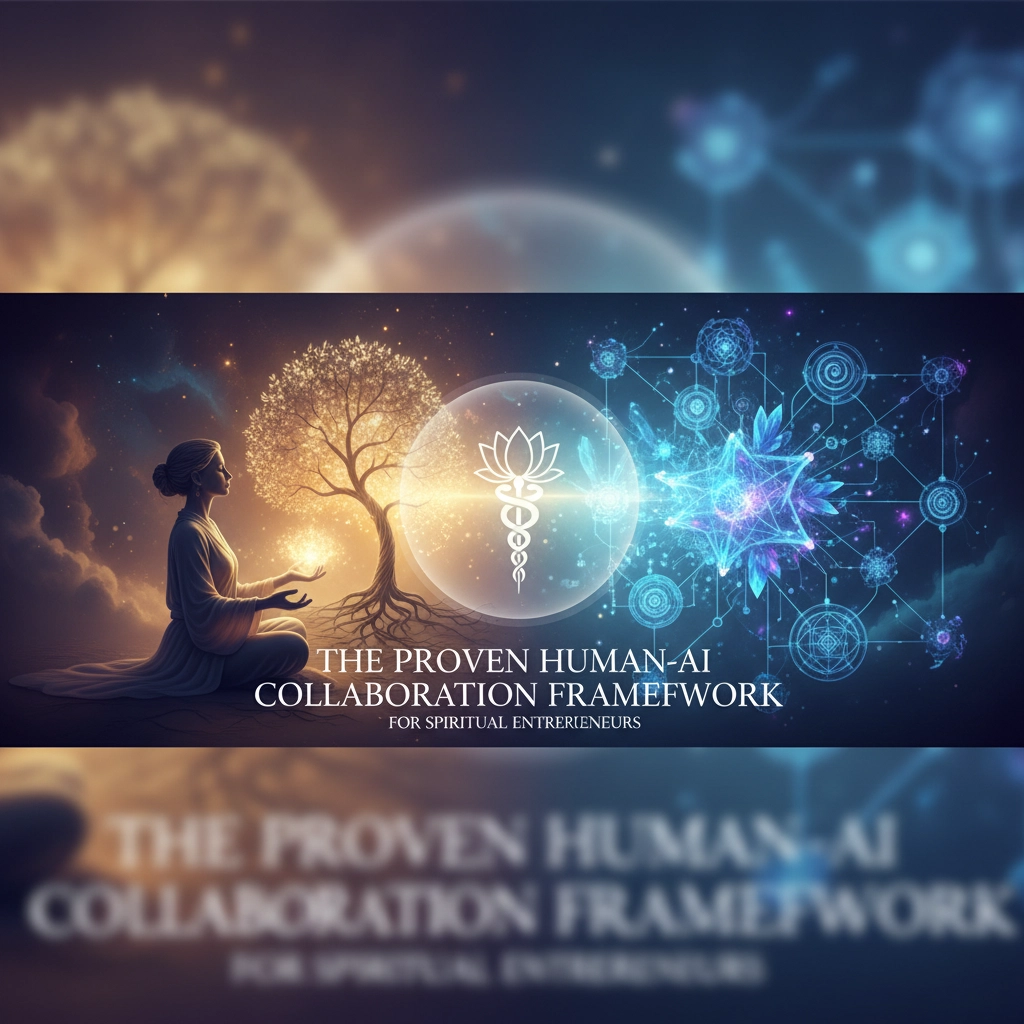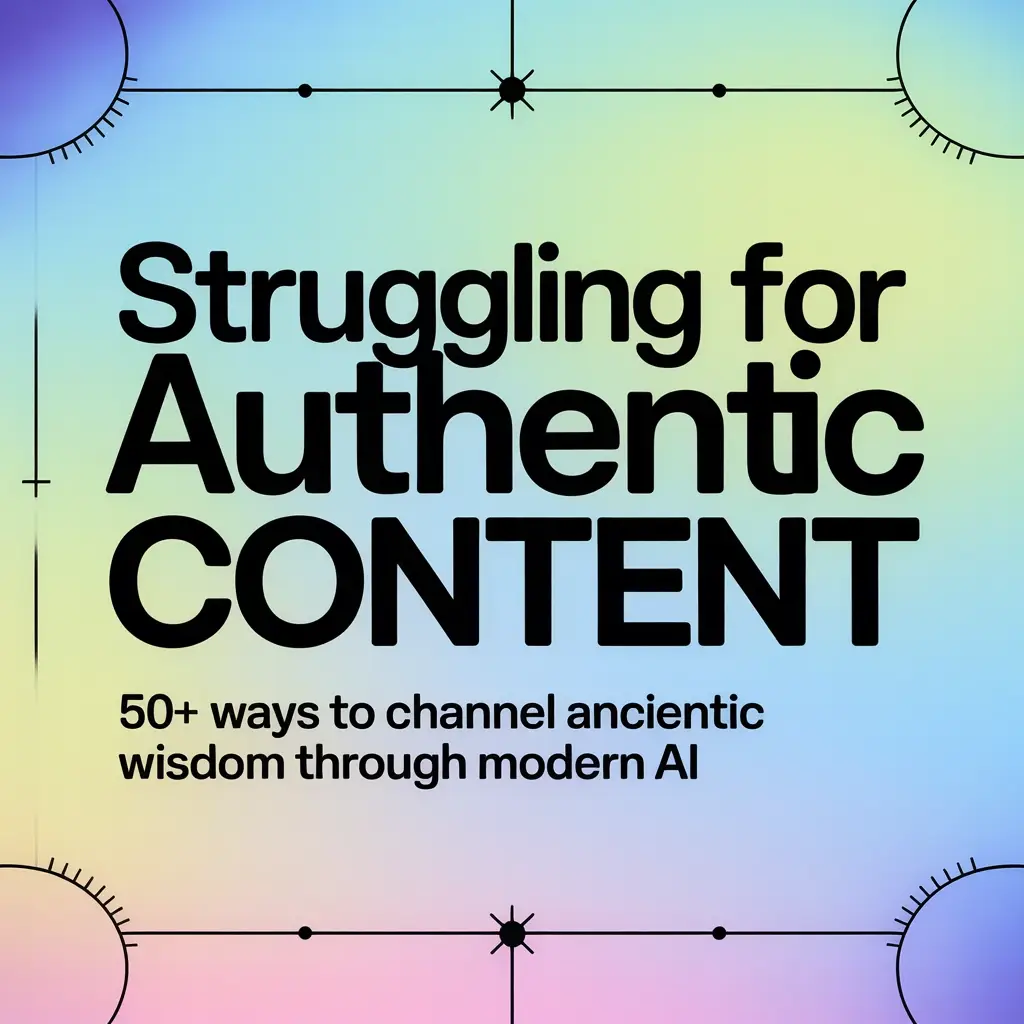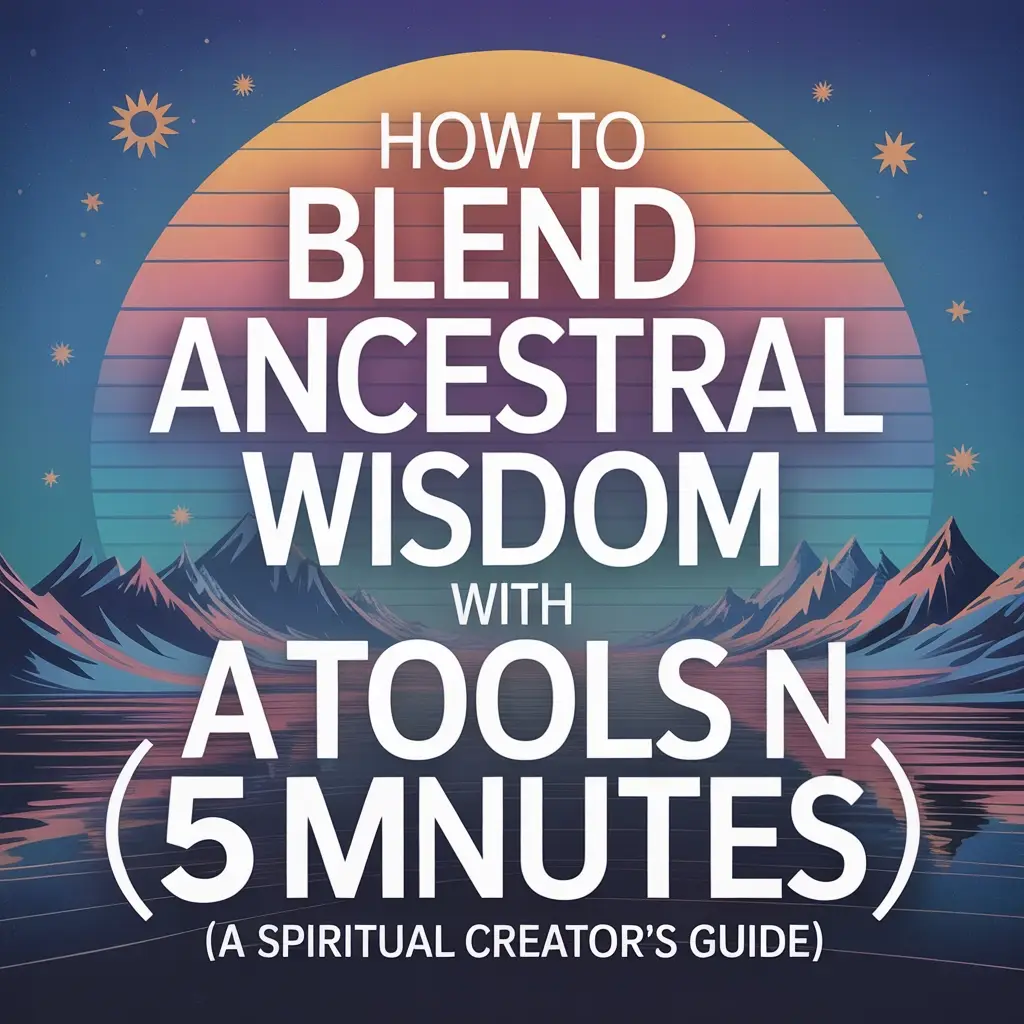Spiritual entrepreneurs face unique challenges when integrating AI tools into their practice. Traditional business frameworks often overlook the ethical and energetic considerations that matter in spiritual work. This collaboration framework addresses those gaps.
Understanding the Framework Foundation
The human-AI collaboration framework for spiritual entrepreneurs builds on research from the Partnership on AI, which identifies 36 key characteristics that differentiate successful human-AI partnerships. For spiritual businesses, three dimensions matter most: goals alignment, empathy requirements, and agency distribution.
Goals alignment examines whether human and AI objectives serve the same purpose. In spiritual entrepreneurship, this means ensuring AI tools support authentic spiritual growth rather than just engagement metrics. Empathy requirements determine if genuine understanding is necessary for the collaboration to function. Agency distribution defines who makes decisions and when.

Core Framework Components
Ethical Integration Foundation
Spiritual entrepreneurs require AI systems that operate within ethical frameworks. This means technology must promote fairness, transparency, and respect for all stakeholders. The framework starts with defining core values before selecting any AI tools.
Create a values document that outlines non-negotiable principles. Include items like data privacy, spiritual authenticity, and community wellbeing. Use this document to evaluate every AI integration decision.
Community-Centered Approach
AI systems can analyze patterns to identify common spiritual interests and needs within your community. This data helps create meaningful connections where individuals can share experiences and grow together.
The framework emphasizes building communities rather than just audiences. AI tools should facilitate genuine spiritual connection, not replace it. Use AI to identify compatibility between community members, suggest relevant content, or highlight discussion topics that resonate with group values.
Personalized Spiritual Experiences
AI algorithms can tailor content to individual emotional states and spiritual development stages. This includes personalized meditation techniques, inspirational messages, or guidance that adapts to each person's journey.
The key is maintaining authenticity while scaling personalization. AI can identify patterns in spiritual progress and suggest appropriate next steps, but human wisdom should guide the framework's design.

Implementation Strategy
Phase 1: Assessment and Planning
Begin by evaluating your current spiritual business model. Identify areas where AI could enhance rather than replace human connection. Common applications include content curation, community matching, resource organization, and pattern recognition in spiritual development.
Document your spiritual business goals and the specific outcomes you want AI to support. This clarity prevents technology from driving your spiritual mission instead of serving it.
Phase 2: Tool Selection and Integration
Choose AI tools based on your ethical framework and community needs. Prioritize solutions that offer transparency in their algorithms and allow customization for spiritual contexts.
Start with one AI application and test its alignment with your values. Monitor how it affects community dynamics and spiritual authenticity. Gradually expand AI integration only after confirming positive impacts.
Phase 3: Continuous Calibration
AI systems in spiritual contexts require ongoing adjustment. Spiritual questions and needs evolve, so your AI tools must adapt accordingly. Regular feedback collection from your community ensures AI continues serving authentic spiritual growth.
Practical Applications
AI-Powered Guidance Systems
Virtual mentors equipped with psychological and spiritual knowledge can provide initial guidance while learning from each interaction. These systems become more aligned with individual spiritual paths over time.
The framework requires human oversight of AI guidance. Spiritual entrepreneurs should review AI recommendations and ensure they align with deeper spiritual principles that transcend algorithmic analysis.
Digital Practice Assistants
AI can remind users of spiritual practices, help memorize sacred texts, or provide relevant content based on emotional states detected through sentiment analysis. These tools support consistent spiritual development.
Design these assistants to encourage rather than replace personal spiritual discipline. AI should enhance spiritual practice, not create dependency on technology for spiritual connection.

Community Building Tools
AI analyzes member interactions to suggest connections between like-minded individuals or identify emerging spiritual topics within your community. This creates opportunities for deeper spiritual fellowship.
The framework ensures AI recommendations serve authentic spiritual connection rather than just engagement metrics. Quality of spiritual relationships matters more than quantity of interactions.
Collaboration Models
Complementary Partnership Model
Humans handle spiritual guidance, energy work, and personal connection while AI manages data analysis, content organization, and pattern recognition. This model preserves spiritual authenticity while leveraging AI efficiency.
Define clear boundaries between human and AI responsibilities. Spiritual insights, energy healing, and personal spiritual direction remain human domains. AI supports these activities through research, organization, and administrative tasks.
Enhanced Decision-Making Model
AI provides data-driven insights to inform spiritual business decisions while humans make final choices based on wisdom and intuition. This combines analytical precision with spiritual discernment.
Use AI to identify trends, measure spiritual community health, or analyze the effectiveness of different spiritual practices. Human judgment interprets this data within the context of spiritual values and community needs.
Adaptive Learning Model
AI systems learn from spiritual community interactions and evolve their responses over time. Human spiritual leaders guide this evolution to ensure AI development aligns with authentic spiritual growth principles.
Regular review sessions help calibrate AI learning with spiritual wisdom. This prevents AI from developing responses based solely on engagement metrics rather than genuine spiritual value.
Implementation Considerations
System Evolution vs. Fixed Deployment
Determine whether your AI systems will evolve through ongoing interaction or remain static once deployed. Spiritual contexts typically benefit from evolving systems that adapt to community growth and changing spiritual needs.
Build feedback mechanisms that allow spiritual community members to influence AI development. This participatory approach ensures technology serves authentic spiritual development rather than imposing predetermined spiritual paths.
Sustainable Technology Integration
Align AI implementation with spiritual values of environmental stewardship and resource consciousness. Choose energy-efficient AI solutions and optimize systems to minimize environmental impact.
The framework emphasizes purpose-driven technology that supports both spiritual growth and planetary wellbeing. This reflects the interconnected nature of spiritual development and environmental responsibility.

Measuring Success
Spiritual Authenticity Metrics
Track whether AI integration enhances or diminishes authentic spiritual experience within your community. Measure depth of spiritual conversations, quality of spiritual insights shared, and overall spiritual satisfaction.
Community Wellbeing Indicators
Monitor community cohesion, mutual support levels, and spiritual growth progress. AI should strengthen spiritual community bonds rather than fragment them through over-personalization or technological dependence.
Ethical Alignment Assessment
Regularly evaluate whether your AI systems continue operating within your ethical framework. Check for algorithmic bias, data privacy compliance, and alignment with stated spiritual values.
This framework provides a structured approach to human-AI collaboration that honors both technological capability and spiritual authenticity. Success depends on maintaining clear boundaries, continuous calibration, and unwavering commitment to genuine spiritual service.
The goal is creating synergy between artificial intelligence and human spiritual aspiration, making spiritual guidance more accessible while preserving the irreplaceable value of authentic human spiritual connection.



